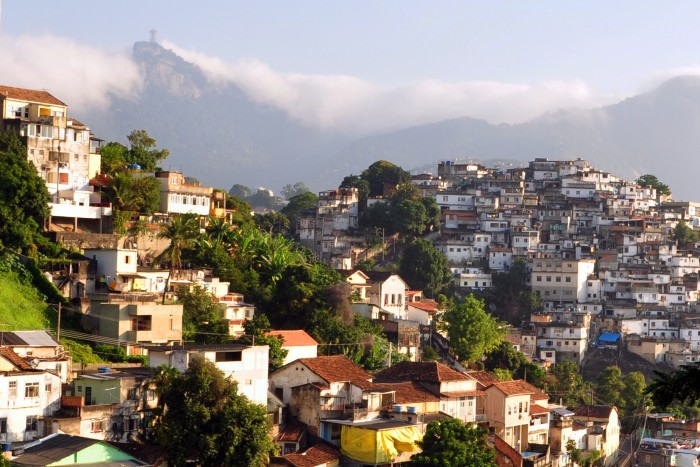Capitalism must take poverty seriously

I am passing through Rio de Janeiro en route to Belo Horizonte to attend the XXV World Congress of UNIAPAC (The International Christian Union of Business Executives) on the theme of “Business, Government and civil society working together for the common good.”
This is my first visit to South America and Rio has presented me with a capitalist conundrum.
What a great city. The beach at Copacabana is wonderful (well, it looks marvellous, I have not yet had opportunity to explore!). The setting, the mountains, the water, the statue of Christ the Redeemer are exceeded only by the friendliness of the people.
I know well that many cities and metro areas like Rio throughout the Americas and Africa present contrasts and poverty and wealth mingle together. My driver took me past large swathes of ‘shanty town’ like housing. It was not that I have never seen anything like it before (I have visited Cape Town in the past), but the capitalist conundrum struck me again.
The quality of the housing was shambolic. Half-built buildings, many exposed to the elements, seemingly built one on top of the other stretching back from the highway into the hilly areas behind. The conundrum is this. Almost all had satellite dishes and air-conditioning units. So on the one hand there seems to be poverty (at least as represented by poor housing) and on the other the poor exercising consumer choices in a capitalist economy that would reflect many more affluent priorities.
Are these apparently irreconcilable priorities reconcilable? Can capitalism provide a solution to the poverty of housing and indeed poverty more generally as well as providing such consumer choice?
Here are a few thoughts:
- – Housing is a fundamental human need and improvement in the quality of housing makes a real difference to the quality of people’s lives
- – Human individuals will make consumer choices within the capitalist system and have the freedom to do so (the satellite dish in the shanty-town)
- – Enterprise, work and wages are the essential pre-requisite to lifting the populace out of poverty
The problems which I think arise are when wages are so low they are unable to sustain the basic infrastructure (housing) yet provide some opportunity for consumer choice. I cannot believe how cheap the taxi fares are.
According to the Economist Brazil is in a hole and still digging. One of the largest economies in the world has seen GDP contract, deficits grow and government corruption is rife. A country the size of Brazil, of course, and in its regional setting, faces many difficulties of environmental issues, inclusion and so on. The 2016 Olympics is seeing significant infrastructure investment, though, once again, government corruption damages the inclusivity of the growth which is generated. All of these things are likely to enhance the capitalist conundrum rather than solve it.
Capitalism does lead to some unintended consequences. I am not one who believes that equality per se is necessarily a desirable objective; but poverty (in absolute terms) surely cannot be acceptable to any decent human being? Yet, a market economy built upon ethical principles can be the solution to many of these problems.
- – Capitalism must take poverty seriously
- – Corrupt government and excessive regulation damage inclusive growth
- – Economic freedom means freedom of choice (we should not criticise the choice of a satellite dish)
- – The encouragement of enterprise, employment and wage growth are essential to dealing with the infrastructure and housing problems
Capitalism generates conundrums. Long live capitalism. Oh, but take poverty seriously and let’s use our business and economic opportunities to help.

Dr Richard Turnbull is the Director of the Centre for Enterprise, Markets & Ethics (CEME). For more information about Richard please click here.
